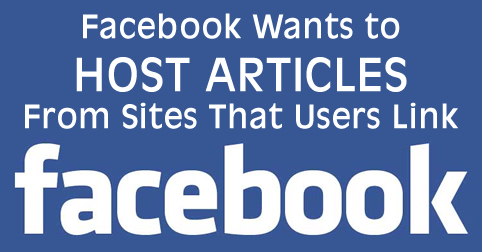
According to the New York Times, Facebook is talking with publishers about such an option.
Facebook hopes it has a fix for all that. The company has been on something of a listening tour with publishers, discussing better ways to collaborate. The social network has been eager to help publishers do a better job of servicing readers in the News Feed, including improving their approach to mobile in a variety of ways. One possibility it mentioned was for publishers to simply send pages to Facebook that would live inside the social network’s mobile app and be hosted by its servers; that way, they would load quickly with ads that Facebook sells. The revenue would be shared.
That kind of wholesale transfer of content sends a cold, dark chill down the collective spine of publishers, both traditional and digital insurgents alike. If Facebook’s mobile app hosted publishers’ pages, the relationship with customers, most of the data about what they did and the reading experience would all belong to the platform. Media companies would essentially be serfs in a kingdom that Facebook owns.
It is unclear if there would be an option for publishers to opt out of this. And it raises several issues. First would be the fact Facebook would be republishing these articles on their own servers, presumably without permission, in a move they call convenience for Facebook users who would not have to wait for remote sites to load the content.
Secondly, publishers might be reluctant to prevent Facebook from doing this, as doing so could mean Facebook reduces the exposure their site gets on Facebook when others share it, via Facebook’s own news feed algorithm. After all, it would make sense that Facebook would push content on mobile users that would lead to an additional article view on Facebook’s own servers where they could display their own ads, rather than sending them to the publisher’s actual website.
With mobile rapidly gaining on having half of all webpage views, and with some sites – such as The New York Times – already seeing over 50% of their traffic coming from mobile – this could have a definite impact on a website’s page views and advertising revenue, as there is no assurance that ad revenue that Facebook would replace with their revenue share would be as valuable as what is currently already on a site. And the loss of page views in the website could drive the value of ad placements on their own sites.
Will this change become a reality? It is hard to say, but Facebook clearly feels they are powerful enough that they could do it.
Jennifer Slegg
Latest posts by Jennifer Slegg (see all)
- 2022 Update for Google Quality Rater Guidelines – Big YMYL Updates - August 1, 2022
- Google Quality Rater Guidelines: The Low Quality 2021 Update - October 19, 2021
- Rethinking Affiliate Sites With Google’s Product Review Update - April 23, 2021
- New Google Quality Rater Guidelines, Update Adds Emphasis on Needs Met - October 16, 2020
- Google Updates Experiment Statistics for Quality Raters - October 6, 2020



